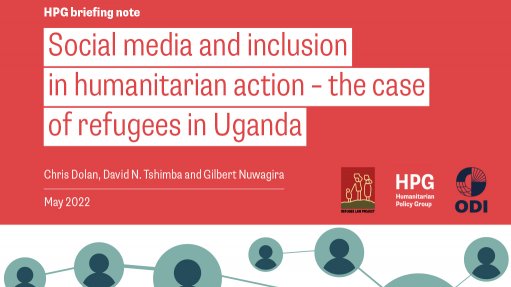
Claims about the potential of social media to change the nature of humanitarian response date back to at least the 2010 Haiti earthquake. Since then, various actors – including government and non-governmental disaster management agencies, humanitarian organisations, emergent groups of ‘digital volunteers’, and affected populations themselves – have been experimenting with new opportunities offered by social media to communicate, mobilise and make sense of crises as they emerge and develop.
This briefing note highlights a disconnect between refugees’ expectations of social media on the one hand, and humanitarians’ ability and willingness to engage with those expectations on the other. While humanitarians are right to engage with caution given the risks to themselves and to their beneficiaries if they simply rush in, the rapid evolution and usage of social media suggests that humanitarians would do well to adopt more intentional approaches to developing systems in order to use these media to mutual benefit. This has never been truer than during the current pandemic in which the imperatives of social distancing continue to re-socialise refugees and humanitarians and their interactions.
The qualitative field research on which this note is based involved refugee populations in a variety of settings (self-settled urban and settlement-based rural) in Uganda and humanitarian workers delivering different types of assistance to these refugee populations. We drew on both the findings from this qualitative research and an in-depth understanding of the particular context faced by refugees (both settled and self-settled) in Uganda, to arrive at a set of recommendations for humanitarian actors working in this particular space. This note was written by Refugee Law Project (RLP) at Makerere University’s School of Law and produced in collaboration with the Humanitarian Policy Group (HPG) at ODI.
The study also complements a parallel piece of research conducted in Venezuela. Together, the two projects look to feed into a wider HPG-led project examining the humanitarian ‘digital divide’ and how the wider use of digital technology has facilitated or hindered humanitarian commitments to impartiality and inclusion.
Report by the Overseas Development Institute